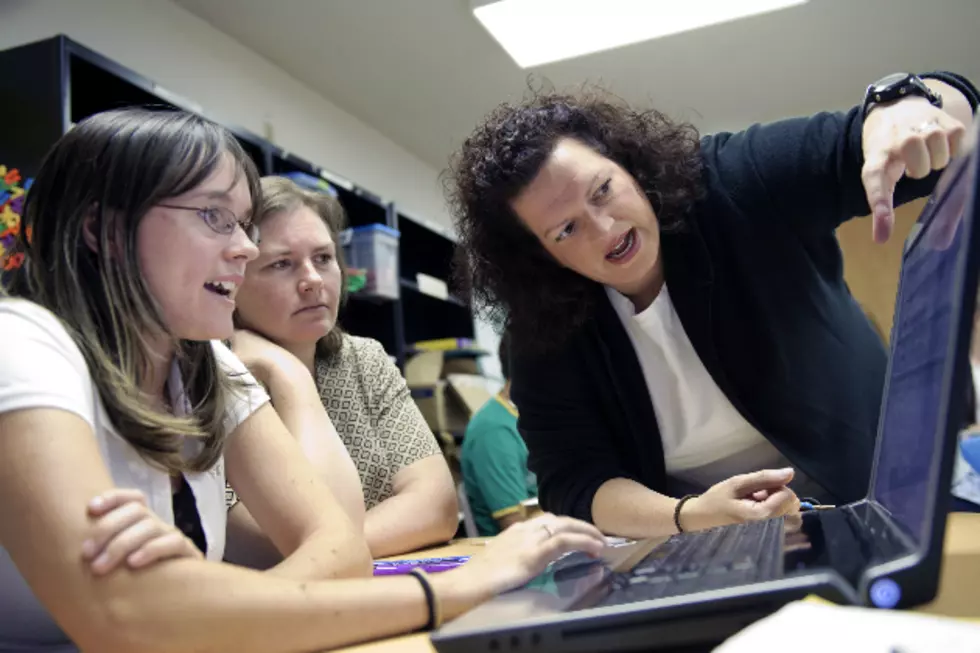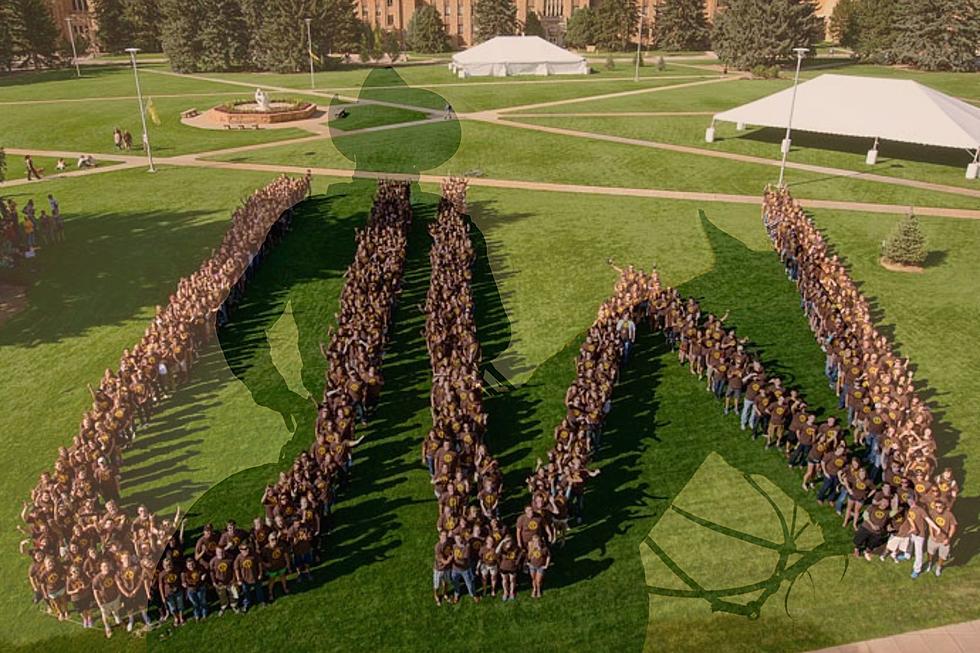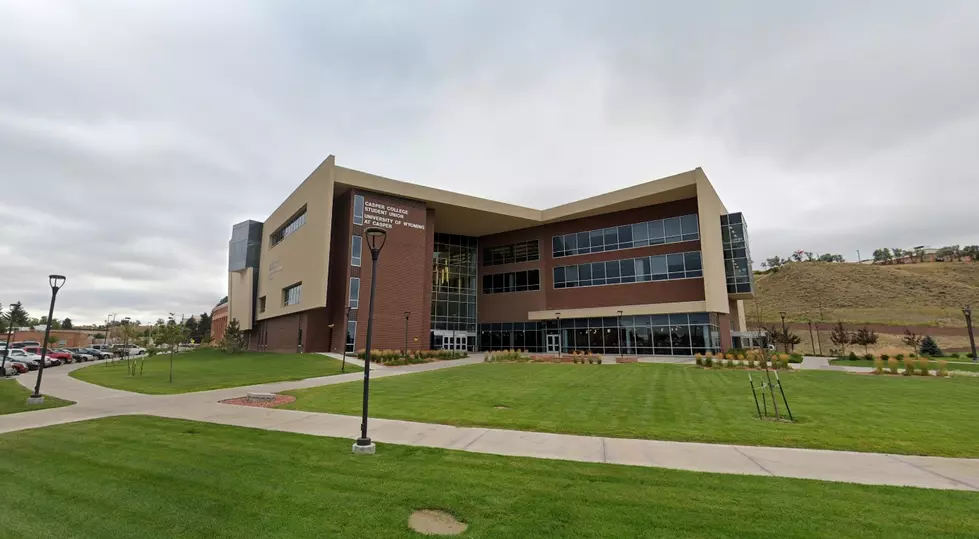
Survey Shows Public Gives UW High Marks
Wyoming residents have given the University of Wyoming its highest marks since polling on UW’s performance began in 1984.
The university’s election-year survey, conducted in October by the Wyoming Survey Analysis Center, shows that a strong majority of the state’s citizens believe UW has improved in recent years, is spending its budget wisely and is reaching out across the state.
Asked to rate the university the same way students are graded, 39 percent of respondents gave UW an “A” and 35 percent offered a “B” rating, with the average of all responses equating to 3.31 on a 4.0 scale. That “grade point average” for UW is the highest of the 15 election-year surveys taken in the past 28 years.
“We’re delighted to see such a strong level of recognition of the university’s efforts on behalf of the state,” UW President Tom Buchanan says. “At the same time, we recognize that keeping the public’s confidence will require continued efforts to improve.”
This year’s statewide telephone survey of 668 Wyoming citizens was conducted in October. The survey has a margin of error of plus or minus 4 percentage points.
Biennial surveys of Wyoming residents have been conducted by the UW Department of Political Science since 1972, including questions on a variety of political and social topics. College of Arts and Sciences Dean Oliver Walter, the former head of the department who started the polling in his early days as a faculty member, says questions about UW’s performance were added in 1984.
“I feel good about the results of this year’s survey,” says Walter, who’s retiring next year after a 42-year career at UW. “They show a general good feeling about the university, across all demographic groups and in all parts of the state.”
Among the survey’s findings:
Sixty-three percent of Wyomingites either agree or strongly agree that UW has steadily improved during the past several years. That’s up from 58 percent in 2000.
Sixty-one percent either agree or strongly agree that UW is spending its budget wisely, up from 50 percent in 2002.
Seventy-six percent have heard or read about UW’s outreach programs offering courses around the state.
Sixty-nine percent agree that UW and the state’s community colleges are working together to provide high-quality education for Wyoming students.
Walter says it’s difficult to pinpoint why the university’s image has improved. During his lengthy tenure at UW, he says, the caliber of the faculty and teaching has improved. The Hathaway Scholarship Program is bringing more of the state’s best students in contact with those faculty members, and that interaction could be affecting public opinion. But the biggest factor may be the university’s efforts to extend programs and services around Wyoming, a major priority for UW under Buchanan’s leadership.
“I think we get out and around the state better than we used to,” Walter says.
Maggi Murdock, dean of the UW Outreach School, says the university’s outreach efforts are wide ranging, including increased course and degree offerings; speaker series and cultural programs; agricultural extension; and interactions with all of the state’s key industries to help drive the state’s economy.
“More and more people around the state are saying, ‘Please, do more – bring more of the university here,’” Murdock says. “Things have finally coalesced. In fact, we are providing services for the entire state in a myriad of ways, and I think more people are starting to recognize that.”
Murdock, who’s also retiring as Outreach School dean next year, has been instrumental in building up the UW/Casper College Center and in making more off-campus bachelor’s and graduate degree programs available around the state.
One of those who’ve taken advantage of the increased outreach offerings is Bill Landen, associate vice president for student services at Casper College, who earned his master’s degree in public administration through the UW Outreach School. Landen, a state senator from Natrona County, says UW’s cooperation with Casper College has definitely boosted the university’s image in that part of the state. He suspects UW’s close relationships with the state’s six other community colleges has improved perceptions of the university in other parts of the state as well.
That, in turn, has resulted in strong support for UW from the public, Wyoming State Legislature and other elected officials, Landen says.
“We’ve been so fortunate to ride the wave of good economic times in Wyoming, and the Legislature has decided that one of the best places to invest for the long term is the university,” Landen says, noting increased spending on UW facilities and programs. “The university has done a great job of working hard to attract the faculty it takes to do so many kinds of research, and to obtain the grant monies that enable them to put the university on the map. The private fundraising has been impressive, and the university has ended up with the ability to match a lot of what the state is doing. That just puts the frosting on the cake.”
Landen says the boost in public and legislative support for UW is a good thing, but it also could pose challenges because of increased expectations. For example, while there’s rising demand for bachelor’s degree programs around the state, it might not be financially feasible to create programs similar to UW/CC in many other communities, he says.
Walter notes that UW’s recent surveys have shown higher aspirations among Wyoming residents for the university. Survey respondents have increasingly indicated in the affirmative when asked whether Wyoming has the resources to pay for a university comparable to the best in surrounding states -- such as the University of Colorado, the University of Nebraska or the University of Utah. So UW’s ability to continue receiving high marks from the public in the future likely will depend upon further efforts to achieve excellence.
“When the economy is up, Wyoming people feel a lot more confident -- like we can take on the world,” Walter says. “For the university, that means we must continue our efforts to increase the quality and quantity of our work, and that even more public and private financial support will be necessary.”
More From Laramie Live









